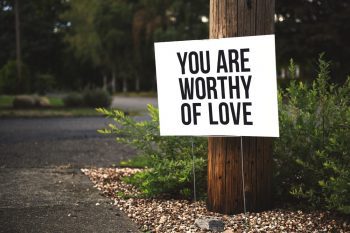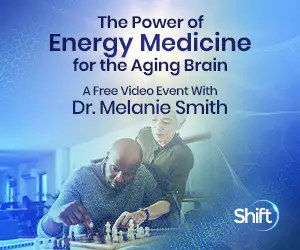Guest writer for Wake Up World
It’s late twenty eighteen where everything is a messy mystery in the world of humans.
Compared to our rocky history, life has been relatively fruitful for us over the last several decades with exponential growth in human consciousness – such as how we think about our interrelationship with our environment, other cultures and even ourselves – as well as the general expansion of both individual and mutual awareness.
Our collective conscience is speaking about our past and present evils like never before, and rightfully so. However, this sudden explosion of ancestral guilt for how we’ve killed, maimed, raped and pillaged for millennia – which was largely flamed by the spread of information across the unprecedented invention of the internet – has had its harmful effects too.
Simply put, we are divided into camps where we blame each other for society’s ills in sometimes abusive and hateful ways. A prominent example is obviously left versus right politics, extending in America and across the world as never-Trumpers versus Trump supporters. Then of course there’s plenty of moral, philosophical, practical and other disagreements too. Unfortunately however, our division goes even more extreme on the fringes, such as women versus men and alternative sexuality versus heterosexuality.
The height of this insanity is everyone else versus white, straight men.
Bringing Clarity to Our Vision
Our current stage in the cycle of western (and even human) experience involves a natural exposure of the imbalance of power across our societies, which is why the resistance against the patriarchy is one of the primary sources of this harmful behaviour. It more or less has noble roots, however it lacks the bigger picture which has resulted with an unintended but destructive consequence.
We fight with each other more than ever. Behind the anonymity of the web, plus the ideological echo chambers fuelled by social media algorithms and partisan news outlets, we commonly degrade ourselves to not just outwardly disrespect and hate against other people because of their different opinions, but inwardly maintain a taste of disdain towards them too.
It’s ironic, really. In as much as western society in general has strived for equality and dignity across all demographics over recent decades, the relationships within our own cultures have deteriorated in vile and outright dangerous behaviours. For example:
- The extreme left and right wings of the political bird have spiralled political dialogue out of control due to their bitterly increasing hate for each other;
- Many people have flown right into the trap of ‘being that which you hate’, such as the widespread abuse and even violence inflicted by the more extreme social justice warriors;
- Irrational and excessive political correctness has divided many people into cages where they fight to the existential death for their right to be heard and respected; and
- Those who have rejected mainstream culture for alternative narratives on life are widely infighting for the ‘trophy of ultimate truth’, regardless if they recognise it themselves.
It is admirable that many people in this current day and age are really trying to right our wrongs against our environment and our human family, but unfortunately we’re poorly focused and our execution is counter-productive in many ways. Whilst we’re rotting from the inside out by fighting with each other and hating on each other, the actual source of the struggle goes largely unnoticed, let alone countered.
What is this core conflict? It is simply control versus freedom.
Put slightly differently, we can also think of it as centralisation versus decentralisation. For many centuries humanity has continuously strived for emancipation from oppression and the solidification of sovereignty. Sometimes it has been two steps forward, once step back, yet we’ve still made some great inroads which are best symbolised by any man-made law which promotes individual liberty and the right to pursue one’s own health and happiness.
Yet as we move past the start of the 21st century, the freedoms earned by the blood, sweat and tears of our ancestors are being self-abusively eroded by us – the people – because we are mentally brawling amongst ourselves instead of reversing the climbing concentration of wealth and the monopolisation of not just technology and industry, but ideology too.
We’re effectively digging the grave for democracy.
Refocusing on the Instruments of Control
Examples of societal infrastructure which has been privately cartelised to either significant or complete degrees include the money supply, banks, mainstream media, pharmaceuticals, energy manufacturers, tertiary education, big tech, social media platforms and other online infrastructure, to name but a few.
However, an equally terrifying reality has emerged; private control over our managerial systems (aka governments) has been boosted to unprecedented levels, with lobbying, bribery, political puppetry, overt collusion and unelected bureaucracy really making an obvious mockery of our once thriving democratic dream.
Regardless if we call the state of our current system an aristocracy, corporatocracy, kleptocracy, oligarchy or a top-secret-tyranny, it’s more or less irrelevant. What’s important is to understand that power and wealth is so condensed in our social system that it undoubtedly influences our present and future in undemocratic, fraudulent, unethical and harmful ways.
And ‘we the people’ allow it, not just by failing to collectively call it out for what it is, but also by wasting too much of our precious time and energy by projecting our conscious (and unconscious) frustrations in misguided ways, regardless if the intention is actually honourable or not.
And that’s exactly what people who benefit from our sick system want. As stated in my novel, ‘The Simulation’:
So that’s why they want us fighting each other. They want feminists to be angry at men. The patriarchy is the scapegoat, because it means their focus is on men, not on how the system is designed itself. They want us to be so distracted with our individual plights so that we don’t collectively put an end to our debt-enslaved society. Now of course I’m not saying that many of these issues aren’t important, but if we want to have any chance at resolving poverty, homelessness, community breakdown, psychopathological pandemics and our sick society in general, then we need to put our differences to the side and together focus on the bigger picture.
Competition AND Cooperation Are the Keys to Success
?Competition is healthy, in some ways. For example, competing against each other in scientific and innovative pursuits can be done respectfully and playfully, whilst still advancing us with greater efficiency. Other examples are sports, entertainment, ideas, policy and even philosophy, as well as debating the best moves forward. Yet once we begin to compete in self-defeating manners – such as the fear and hate that we project onto each other for having different opinions – then we all lose.
Instead, we need to cooperate at basic levels, even if it means just avoiding conflict. However, there really is a strong opportunity to identify our shared goals and work together to achieve them. We should take it.
Think about the simple choice we have. Do we support covert control or do we stand for a sovereign society? Do we want the power to be in the upper tiers of financial privilege or in the hands of the people?
If you chose the latter, then you support a free society where people don’t consistently fight and hate on others but instead support ‘individual rights’ and ‘do no harm unless in self-defense’. But that’s not how some people act:
- Online gangs of political correctness minions consistently abuse and harass those who they don’t agree with, regardless if their heart is in the right place;
- People with bigoted, dissenting or just alternative views (sometimes justifiably and unjustifiably labelled as ‘hate speech’) are being called to be censored by big tech (the modern-day public square), instead of being objectively and respectfully debated which of course is the only way to evolve the collective narrative (i.e. suppression of free speech has never and will never work and actually has a counter-productive effect);
- Many people who ‘have chosen a side’ get pleasure from seeing the other party suffer; and
- The self-harm that is generated by this infighting – such as anxiety, depression and fear – is strikingly ironic.
Now make no mistake, we don’t need to get along with everyone, nor do we even have to agree on anything beyond the principles we all share. There will always be views that seem ridiculous or even outright insane, regardless if our critique of them is accurate or not. But that doesn’t mean we cannot conceptualise how reality works: these are unimportant conflicts which don’t break our unspoken agreement.
?
After all, as long as we’re not causing harm, our right to live as we freely choose needs to be respected by ourselves and each other. So consider it now spoken: that’s our fundamental agreement. Memorise it and live it. In both the simple and complex ways it arises, it’s best we start operating with a basic love and respect for each other if we want it for ourselves.?
The Role of the Independent Media
A default destiny has arisen for the independent media, which has never been so critical and influential in shaping the future of our species. The strong majority of the population have little trust in the mainstream media (as indicated by poll after poll after poll) because they feel that the corporate media sensationalise and politicalise information, as well as spread propaganda and fake news, to advance their own financial and ideological agendas. (See: The Alternative Media is Replacing the Mainstream Media: Here’s How You Can Help.)
This is why online and independent media platforms have grown exponentially over recent years, including social media platforms which honour free speech. Yet the independent media is just as divided as the populace. In as much as many platforms have collaborated with others who have similar views, this has resulted in combative echo chambers and therefore further fragmentation within the networks of people who follow them.
Simply put, the ‘truth and freedom network’ has suffered from a divide and conquer strategy because the independent media has done the same politically, geopolitically, systemically, philosophically and conspiratorially.
Therefore, the independent thinking communities at large, as well as the alternative media, have a grand opportunity to reverse this trend: we all need to encourage cooperation between those who hold truth and freedom in high regard.
Ultimately, it’s a simple and smart suggestion: in whatever way it makes sense, let’s have an ongoing discussion through our social and professional networks about helping each other out in the name of a free and decentralised future for humanity. As added benefits, it will largely identify infiltrated information sources, shrills and any others who don’t align with a free and just society, as well as speed up the inevitability of a true public dialogue emerging about the dark and dysfunctional realities of our social system and the best possible candidates for moving past them.
Final Thoughts
So many of us are sick, stressed and/or sad. It’s a poor state of affairs, given our technological, intellectual and philosophical progress. Our collective health is disproportionately suffering on many levels, which no doubt encourages much of this irrational and combative behaviour.
However, it is important to understand that most people’s hearts are more or less in the right place, regardless of how selfish, cowardly, traumatised, misguided or belief-controlled they might be. When we start with turning on this light bulb, it’s much easier to be more empathetic and less condemning towards those we disagree with.
However, we need to also ensure that we’re humble enough to realise we have many beliefs that are actually wrong. We are deceived and deluded in our own, unique way. This recognition is fundamentally important for advancing both our individual and collective perspective.
Put another way, we need to respect the journey we’ve always had: for our entire lives we’ve constantly exposed our opinions that were wrong and then changed our minds accordingly. This journey will always continue and we’re lying to ourselves if we believe it has come to an end, even with some of our most celebrated convictions.
In addition, when individuals express hate towards others, it’s generally because they have some level of hatred towards themselves, yet they likely fear something about the other party too. For example, they might fear their views and what their views represent, especially ones which would uproot their own dogmatic positions and therefore their sense of identity. In their perspective (regardless if it’s conscious or unconscious), it’s a threat to their sense of self.
That’s not to remove responsibility for hateful behaviour, because regardless of poor programming, traumatic life events or other factors beyond our control, we all have the power to respond in any way we so choose. But we can still be compassionate towards their confusion and self-generated suffering because we’ve all had it to one degree or another in our own past (and most likely presently too).
Furthermore, it doesn’t matter if we’re absolutely right about whatever peripheral debate we’re having with others, we still need to respect our fundamental alliance. To reiterate and reshape, this relationship is based in truth, freedom, honour, love and peace. If we do so, just imagine the decentralised and sovereign future we could potentially create.
And one more thing: people power is our ultimate weapon. Innovation, policy upgrades and systemic utilities have evolved not because of those in power, but because of the will of the people. In this light, of course it is necessary to illuminate the darkness of immorality, poor design, scamming and corrupt centralisation within our public and private institutions, however we must also remember that we are the primary co-creators of our destiny too.
Hopefully we can wise up with how we capitalise on it.
About the author:
Phillip J. Watt is an author and presenter who lives on the Mid North Coast of NSW, Australia. His first book, ‘The Simulation’, is a daring exposé of the human experience in the 21st Century. His written and film work has reached into the millions of people and deals with topics from ideology to society, as well as self-development. Follow him on Facebook, listen to his ‘Mad Magic’ Podcast, watch his video interviews at his YouTube Channel, or visit his website Pushing the Tipping Point.

If you've ever found value in our articles, we'd greatly appreciate your support by purchasing Mindful Meditation Techniques for Kids - A Practical Guide for Adults to Empower Kids with the Gift of Inner Peace and Resilience for Life.
In the spirit of mindfulness, we encourage you to choose the paperback version. Delve into its pages away from screen glare and notifications, allowing yourself to fully immerse in the transformative practices within. The physical book enriches the learning process and serves as a tangible commitment to mindfulness, easily shared among family and friends.
Over the past few years, Wake Up World has faced significant online censorship, impacting our financial ability to stay online. Instead of soliciting donations, we're exploring win-win solutions with our readers to remain financially viable. Moving into book publishing, we hope to secure ongoing funds to continue our mission. With over 8,500 articles published in the past 13 years, we are committed to keeping our content free and accessible to everyone, without resorting to a paywall.








